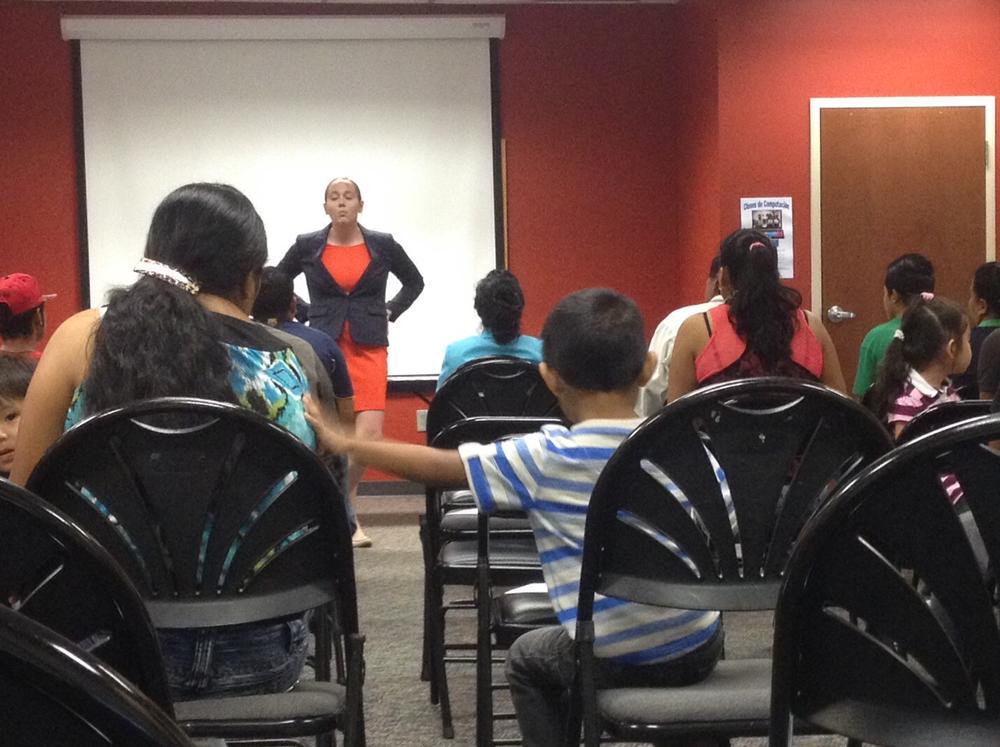
Section Branding
Header Content
With Legal Services Scarce, Unaccompanied Minors Face Likely Deportation
Primary Content

This is part one of a two-part series on legal challenges unaccompanied minors in Georgia face.
To 16-year-old Samuel, the choice to leave his home in El Salvador became very clear.
“The gangs were killing my family members, and they wanted to kill me,” Samuel said in Spanish through a translator. “They wanted to cut my fingers -- mine and my sisters. And that’s the reason I came.”
Samuel, who asked to be identified by his first name only, said a local gang had killed his uncle and two of his cousins in El Salvador. The gang told him he was next if he refused to join them.
So early this year, Samuel decided to leave. His parents were living in Georgia, outside of Atlanta. His dad, a construction worker, and his mom, a housekeeper, had been working in the United States for more than a decade.
“They didn’t want me to come,” he said. His parents told him the trek to the U.S. was too dangerous.
He decided to risk it anyway. After 20 days walking with little money or food, he made it to the U.S-Mexico border and was immediately caught.
“I suffered a lot to get to the border,” Samuel said.
He stayed in a Texas detention center for 12 days. Then, the federal government released him to his parents here in Georgia. But his journey doesn’t end here.
Samuel is one of more than 1,700 unaccompanied minors fleeing Central America who are now in Georgia. Since January, more than 50,000 minors have crossed the border in the U.S., but many of them face legal challenges.
“These kids are still in a very vulnerable situation,” said Wendy Young, president of Kids In Need of Defense, a non-profit that helps minors find pro-bono lawyers.
She said minors like Samuel are automatically faced with legal battles.
“As soon as a child is picked up at the border, they are issued a notice to appear in immigration court and they’re in deportation proceedings,” Young said.
But she says more than 70 percent of children show up to court without a lawyer. Because immigration court is civil – not criminal – she says the government has no obligation to provide these children legal counsel.
Immigration lawyers say that can be a problem.
“I think everybody deserves a fair chance, at the very minimum protections of due process,” said Rebeca Salmon, an Atlanta immigration lawyer at the Access to Law Foundation.
According to data from the Transactional Records Access Clearinghouse at Syracuse, children who show up to court alone are deported about 90 percent of the time. With a lawyer, that drops to nearly 50 percent.
But Salmon says there are only a handful of lawyers in Georgia who do pro-bono or low-bono work, and many children can’t afford lawyers.
“There’s not a lot of providers out there and it’s delicate work to work with these children -- and there are a lot of viable claims,” Salmon said.
Her caseload, for example, has gone up tremendously since January, she said. She said last year, she had a handful of asylum and unaccompanied minors cases. This year, she has hundreds.
“I quit counting,” she said.
One of those cases is 16-year old Samuel from El Salvador. While he’s waiting for his asylum case, he’s currently enrolled in the ninth grade and learning English. He says he likes it here because he’s with his parents.
“I don’t have to be living with fear that [the gangs] are going to kill me because I know that here, it’s a lot different than it was over there,” he said.
This project was reported with assistance from the Institute for Justice & Journalism's "Immigration in the Heartland" fellowship.
Tags: immigration, unaccompanied minors, immigration in the heartland fellowship, Transactional Records Access Clearinghouse
Bottom Content
